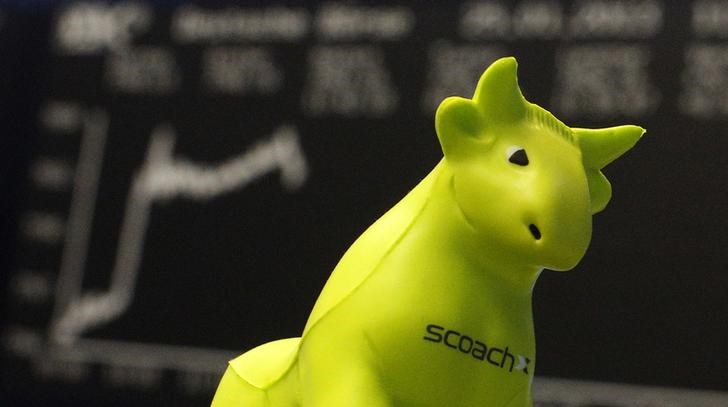By Peter Nurse
Investing.com - European stock markets are expected to open higher Thursday, continuing the week’s volatile trading with sentiment boosted by falling energy costs and signs of compromise in Washington over averting a U.S. default.
At 2 AM ET (0600 GMT), the DAX futures contract in Germany traded 0.6% higher, CAC 40 futures in France climbed 1.3% and the FTSE 100 futures contract in the U.K. rose 1.2%.
European markets are likely to benefit Thursday from the abrupt reversal on Wall Street late Wednesday, with the blue chip Dow Jones Industrial Average overturning a loss of over 400 points to close 100 points higher, as concerns about the lack of a debt ceiling deal eased.
This followed Senate Minority Leader Mitch McConnell offering a short-term suspension of the U.S. debt ceiling to avert a national default -- which Treasury Secretary Janet Yellen has recently said would result in a financial crisis and recession -- until a more permanent solution can be found before the end of the year.
Earlier in the day, a stronger than expected report on private payrolls indicated that the economy still has enough momentum to allow the Federal Reserve to start reducing its bond purchases in November, as expected
The yield on benchmark 10-year Treasury notes has since fallen back to 1.54%, down from Wednesday's three month high of 1.57%.
Also helping the tone in Europe Thursday has been the move lower in energy prices, with crude falling off multi-year highs after an unexpected rise in U.S. crude stocks raised concerns over demand in the world’s largest consumer.
By 2 AM ET, U.S. crude futures traded 0.5% lower at $77.06 a barrel, having hit a seven-year high on Wednesday, while the Brent contract was flat at $81.09, after posting a three-year high in the previous session.
Gas prices also fell from all-time highs, a day after Russian President Vladimir Putin said his country was ready to supply more natural gas to head off a growing energy crisis.
That said, there was some disappointing economic news Thursday, as German industrial production slumped 4.0% on the month in August, a hefty drop from the 1.0% gain seen in July. This follows Wednesday’s sharp 7.7% fall in factory orders, and points to the difficulties Europe’s largest economy has been having with supply chain constraints.
Elsewhere, speeches from European Central Bank members Philip Lane and Frank Elderson are likely to be studied following talk that the central bank is studying a new bond-buying program to prevent any market turmoil when emergency purchases get phased out next year.
Additionally, gold futures rose 0.2% to $1,758.30/oz, while EUR/USD traded 0.1% lower at 1.1550.
